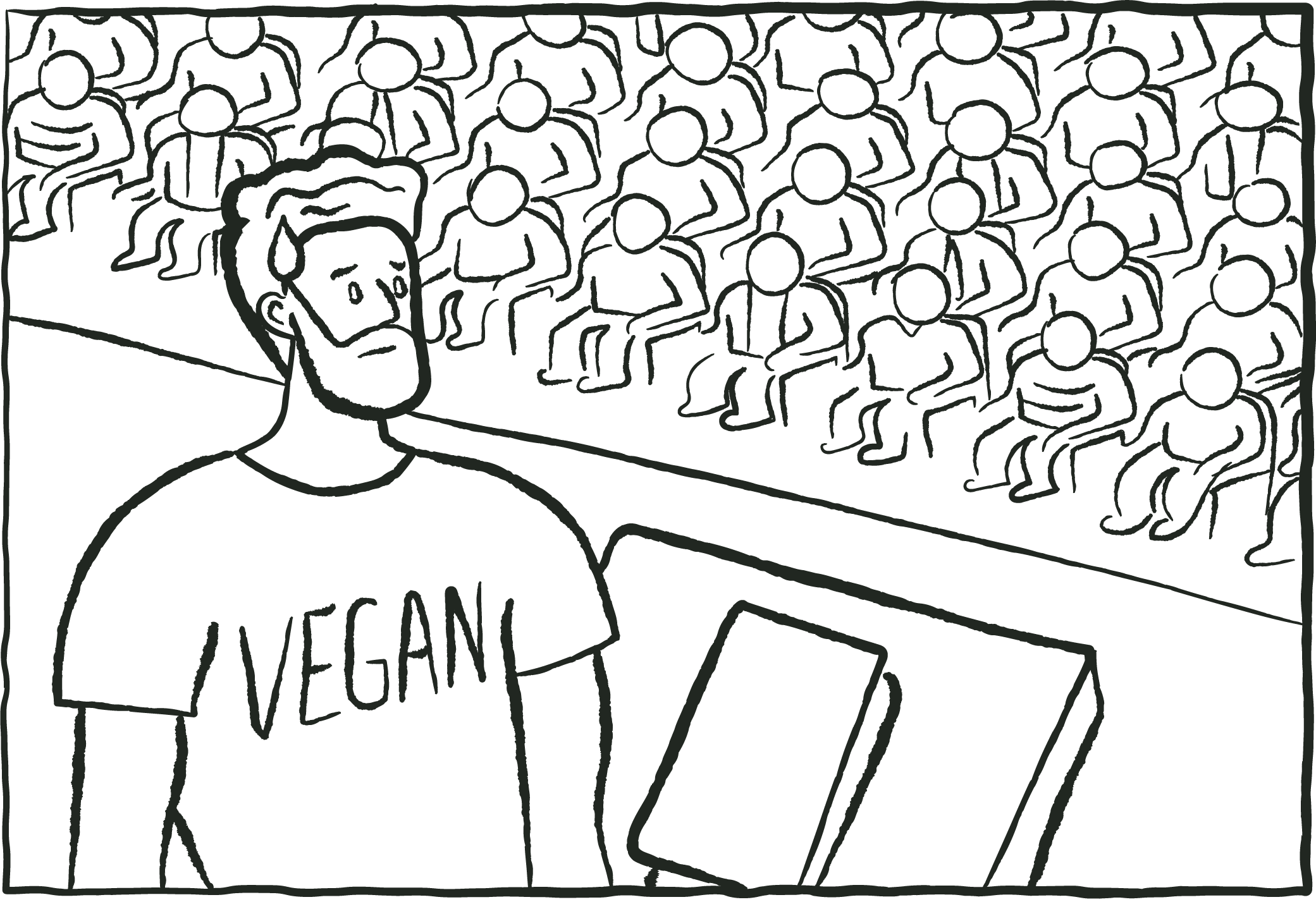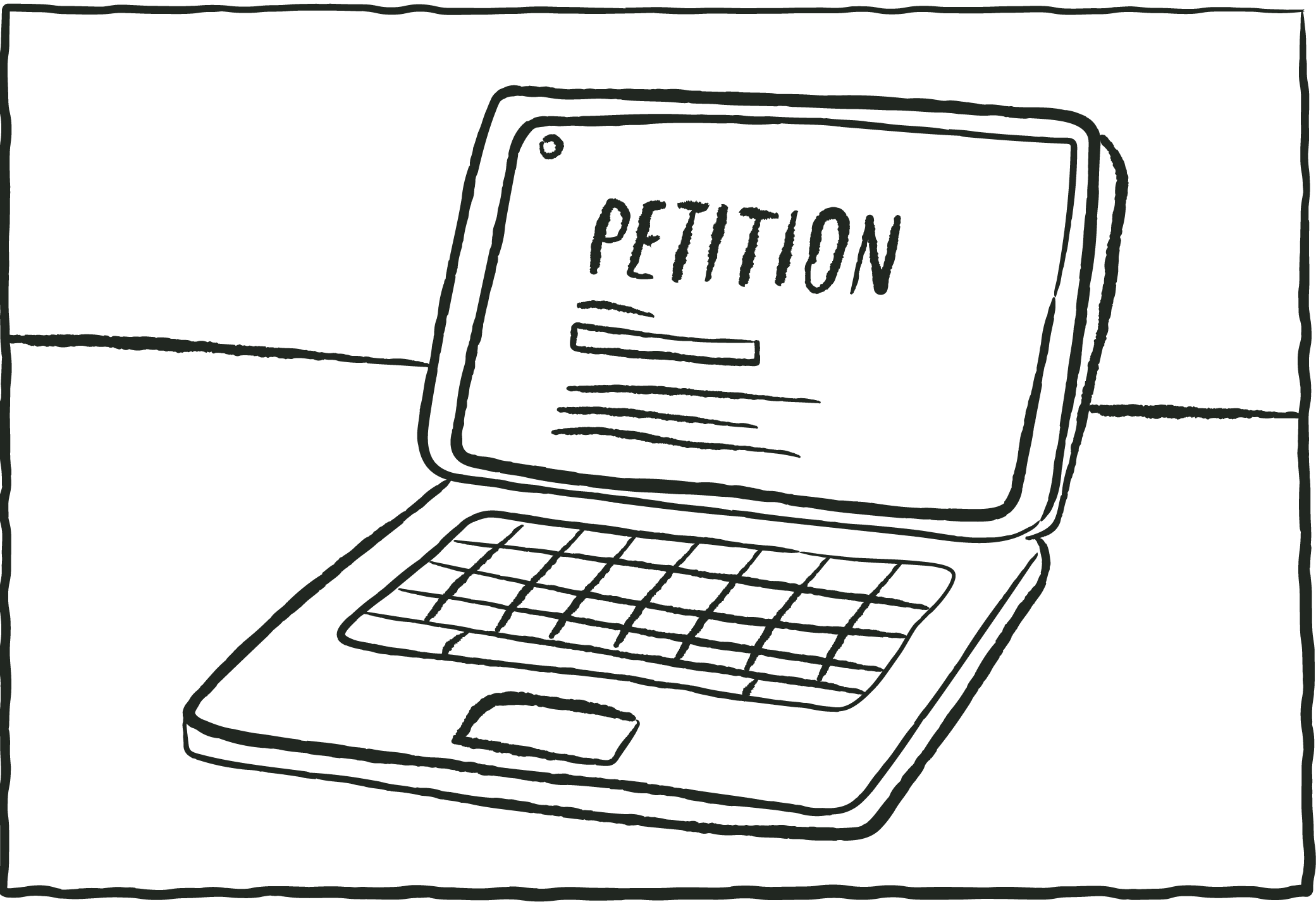I want to do more to help animals, but being an advocate stresses me out
Being vegan can be incredibly empowering. But it can also come at a price. Just being vegan means being exposed to a lot of stress. As vegans, we know that because of carnism, horrific suffering is happening every minute of the day.
The good news is that there are many actions we can take to help reduce this suffering, including advocating veganism. And yet, knowing there is a lot we can do poses its own problems: many vegan advocates become overwhelmed and experience burnout.
Burnout is often the result of unsustainable advocacy—of advocating veganism (and even just relating to our veganism)—in a way that’s not sustainable. Therefore, if we want to do as much as possible to help animals, it’s important to advocate sustainably.

Develop sustainability
When we’re living sustainably, the energy we take into our lives is greater than or equal to the energy we give out. If we relate to our vegan advocacy (or veganism) in a way that’s unsustainable, we give out more energy than we take in, and we end up stressed out and possibly burnt out.
To avoid this, we need to commit to practicing sustainability and get informed about the common causes of unsustainable advocacy. There could be many different reasons why your advocacy is causing you stress, so it’s important to identify what the key causes of unsustainable advocacy are for you.
It’s also essential to understand and honor your needs. You can start learning how by watching this video.

Identify the cause of your unsustainability
Sometimes, it’s simply problems with our tasks or environment that cause us to feel like our advocacy is unsustainable.
Whether you’re advocating alone or as part of a group, such problems might include:
- Having too much on your plate
- Having trouble saying no
- Being perfectionistic
- Having trouble prioritizing
- Being drained by problems outside of your advocacy
- Working in an unhealthy environment or group
- Doing kinds of advocacy that aren’t a fit for you
Do any of these resonate with you? If so, taking our Sustainable Vegan Advocacy online course can help you start addressing them. Let’s look at one example now: doing kinds of advocacy that aren’t a fit for you.
Choose the right kind of advocacy for you
Maybe your advocacy is too demanding. Maybe it’s too boring. Maybe it’s just not “you.” Many vegan advocates force ourselves to do things in the name of our advocacy that we’re really uncomfortable with, and we end up exhausted.
But there are many ways that you can be an advocate. If, for example, you’re a highly introverted person and you hate speaking in front of groups, there’s no reason for you to force yourself to do public speaking.
Of course, if you want to learn and stretch your comfort zone, that’s great! But otherwise, why not look into alternative activities? You’ll find tons of options by searching online, and a good place to start is VeganActivism.org.



Learn about STS
Finally, we recommend that any vegan who is struggling with stress learn about secondary traumatic stress (STS), which affects many vegans and can have serious consequences for our well-being and sustainability if we don’t recognize and address it. STS is similar to post-traumatic stress disorder. But PTSD affects the direct victims of violence, while STS affects the witnesses to violence—which include vegans who have witnessed or are aware of animal suffering.
You can learn about addressing STS, building resilience to stress, and other ways to relate to your advocacy in a sustainable way by taking our Sustainable Vegan Advocacy online course.